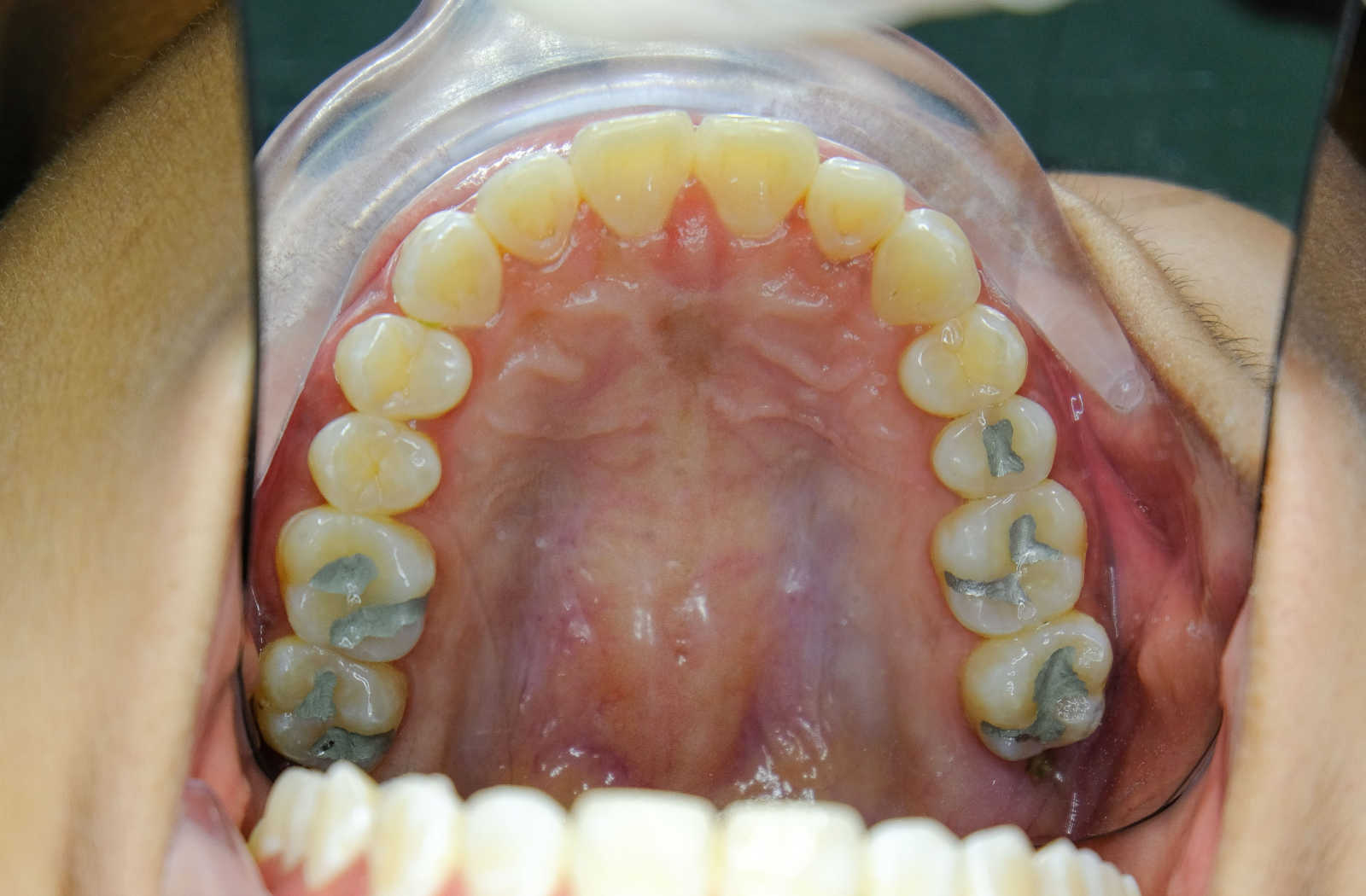Dental cavities are a common disease that cause holes in the teeth, typically due to acid in the mouth. This causes tooth enamel to erode.
Cavities usually result from improper dental hygiene practices and can cause general discomfort. If left untreated, they can lead to other more serious dental issues. Your dentist will fix a cavity by removing the decay, cleaning the area, and using dental filling materials.
Please read our full blog below to learn more about cavities and available treatment options.
How to Fix a Cavity?
Cavities are one of the most common health problems and can be treated by most dentists. Here is a general step-by-step process your dentist might follow to fix a cavity using a filling:
- Your dentist may use an anesthetic to numb the area that will be operated on.
- Your dentist may use a laser or drill to remove any decay in the infected area.
- Your dentist will make space for the tooth-coloured filling to be placed over the opening in the tooth.
- The filling will be hardened using a dental curing light.

Kinds of Filling Material for Cavities
Your doctor may choose from a selection of filling materials to be used in fixing your cavity. Here are some of the more common fillings used:
Tooth-Coloured Composite
White tooth-coloured composite is a commonly used material that offers versatility in filling a cavity. Composite fillings are typically more aesthetic and easier to match with your natural tooth’s colour. A drawback to composite is its lack of durability compared to the materials mentioned below.
Ceramics
Ceramic fillings are typically made using porcelain and have similar durability to silver and gold. It is more resistant to staining but is generally more expensive than a composite filling.
Cast Gold Fillings
Cast gold fillings are durable, lasting anywhere from 10 to 15 years. It is an excellent choice for strength when chewing but can be more expensive than the other options.
Silver Fillings
Like gold fillings, silver fillings are very durable and also typically last for 10 to 15 years. Silver fillings contain mercury and are made of a material called Amalgam. Amalgam is a mix of the metals mercury, silver, copper and tin. Silver fillings are typically less expensive than many of the other available options. Still, it requires the dentist to remove a large part of the tooth for it to fit.
What is a Cavity?
A cavity is caused by the acid in your mouth eroding the enamel and dentin of your tooth. Cavities generally start small and don’t cause discomfort, but if left untreated, they may grow and worsen.
Symptoms of a Cavity
Some common symptoms of a cavity include:
- Tooth sensitivity and discomfort
- A visible hole in the affected tooth
- Black or white stain on your teeth
It is important to regularly visit your dentist to stay on top of your dental health. Don’t hesitate to contact our friendly staff and schedule an appointment at Green Grove Dental.
What Causes Cavities?
Cavities result from tooth decay and plaque build-up that attacks the tooth. Here are a few reasons why you might be getting cavities:
- You’re eating lots of sugary or starchy food and drinks
- You’re not properly flossing and brushing your teeth every day
- You have a family history of cavities
- You have receding gums
- You have an illness or are taking medications that cause dry mouth
- You have heartburn that can result in more acid coming into your mouth
- Eating disorders or conditions that cause vomiting can result in more acid in your mouth
- Weakened dental fillings or devices can result in cavities
How to Prevent Cavities?
Following good oral hygiene practices can help to reduce the likelihood of developing cavities. Here are a few preventative tips that you can follow to help keep your teeth clean and healthy:
Brush and Floss Daily
Brushing your teeth twice daily and flossing to remove any unwanted food particles or plaque from your teeth is optimal for your oral hygiene.
Ensure Your Toothpaste and Mouthwash Have Fluoride
Fluoride is used to help strengthen enamel, so using toothpaste with fluoride can help to combat cavities and increase the strength of your tooth’s enamel.
Visit Your Dentist Regularly
A professional cleaning will help remove plaque buildup and bacteria from those hard-to-reach places in your mouth. Try to book dentist appointments regularly and have them evaluate your dental health.
Cavity Complications
Cavities can become serious if they are not treated promptly by your dentist. Some complications of cavities and tooth decay include:
- Toothache that interferes with daily living
- Broken or lost teeth
- Severe gum disease
- Dental abscesses that can lead to serious infection
If you are experiencing any discomfort in your teeth, book an appointment with our dentists to have them examined by a professional.
Book an Appointment
Cavities are a common disease and are regularly fixed by experienced dentists. Our experienced team is happy to schedule a consultation and discuss the services that we can offer.

